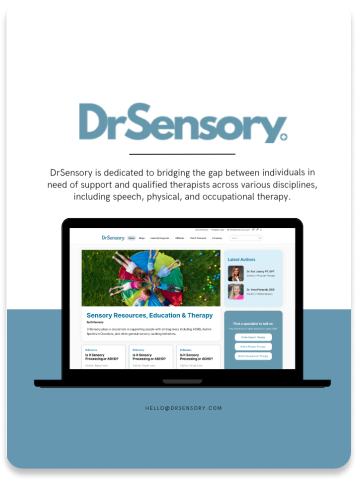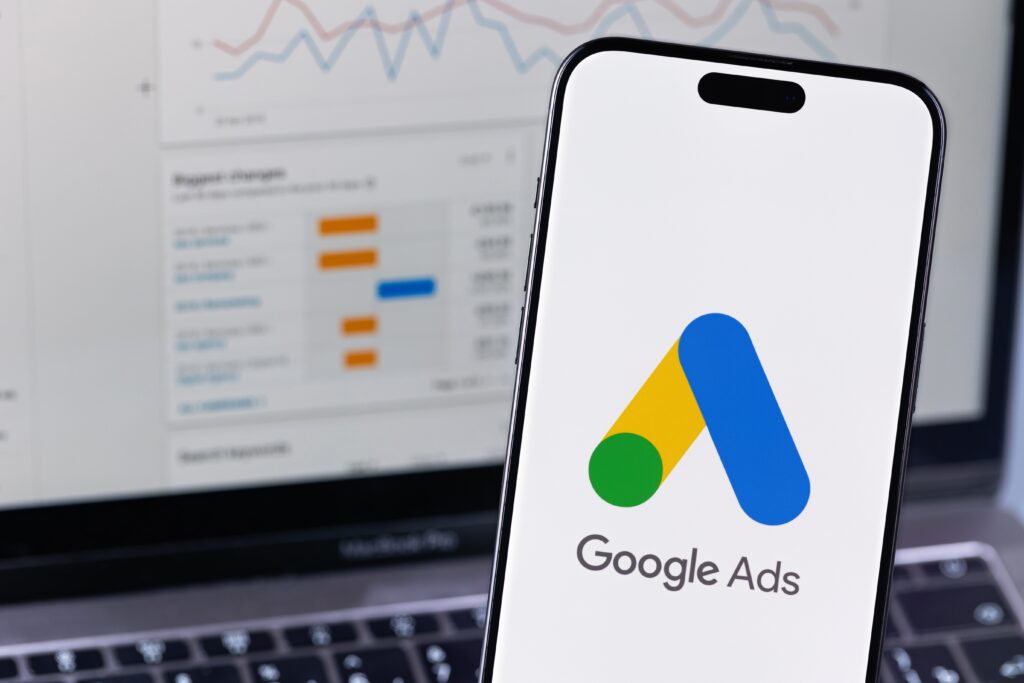
Blog
Top Keywords Every Therapist Should Target in 2026 for Google and AI Search
Expert web designers ensure the site and software is easy to use.Top Keywords Every Therapist Should Target in 2026 for Google and AI Search
As AI search and Google evolve, so must your keyword strategy. In 2026, therapists who want to grow their private practice must rank not just on Google, but also on AI platforms like ChatGPT, voice assistants, and Google’s Search Generative Experience (SGE). A website that doesn’t target the right terms will become invisible to a growing number of potential patients. This guide provides the top keywords and trends you need to know to ensure your practice gets found.

Why Therapists Need a New Keyword Strategy in 2026
The days of simply targeting broad, one-word keywords are over. The digital landscape now prioritizes context, intent, and specificity, driven largely by advancements in AI.
The Rise of AI Search and Natural Language Queries
Patients no longer just type “physical therapist” into Google. Instead, they ask their phones and AI chatbots full questions like, “Where can I find a speech therapist who specializes in toddlers with apraxia?” Platforms like ChatGPT and Google SGE are designed to understand and provide direct answers to these natural language queries. Your keyword strategy must shift from single words to whole phrases and questions—especially if you’re listed on directories like DrSensory, which connect patients with specialized PTs, OTs, and speech therapists based on detailed needs.
Local + Niche = Highest Converting Keywords
Therapy is a deeply personal and location-bound service. A person in Denver doesn’t need a therapist in Miami. Hyper-targeted keywords that combine a service, a specialty, and a location (e.g., “pediatric occupational therapist for sensory issues in Austin”) have much higher conversion intent. These are the searches that lead to bookings, not just clicks.

How to Choose the Right Keywords for Your Therapy Practice
An effective keyword strategy is built on understanding your ideal client and how they search for help.
Understand Your Ideal Client’s Intent
Every search has an intent behind it. Some people are just looking for information, while others are ready to book an appointment. You need to target both.
- Informational Intent: “what are the signs of a rotator cuff tear?”
- Conversion Intent: “best physical therapist for shoulder pain near me”
Your website should have content that satisfies both types of searches.
Use Keyword Tools (and AI) to Find Opportunities
You don’t have to guess what people are searching for. Tools like Google Keyword Planner, Ubersuggest, and AlsoAsked can provide valuable data on search volume and related queries. You can also use AI like ChatGPT to brainstorm questions your ideal client might ask. Don’t forget to look at Google’s “People Also Ask” section and autocomplete suggestions for real-time insights.
Consider Search Volume, Competition, and Geo Relevance
The best keywords have a balance of decent search volume and low competition. For most therapy practices, geographic relevance is the most important factor. It’s better to rank #1 for “speech therapy for stuttering in Dallas” than to be on page 10 for the highly competitive term “speech therapy.”
Top Therapist Keywords to Target in 2026 (Grouped by Intent)
Here are examples of keyword categories you should focus on for a modern, AI-ready strategy.
High-Intent, Conversion-Focused Keywords
These phrases indicate a user is ready to take action. They often include transactional words like “book,” “cost,” or an insurance provider’s name.
- “physical therapist near me who takes Aetna”
- “book speech therapy for toddler online”
- “occupational therapist in [City] open weekends”
- “free consultation for couples counseling [City]”
Informational Keywords for AI/AEO & Content Marketing
These keywords are perfect for blog posts and FAQ pages. They establish your expertise and help you get featured in AI-generated answers.
- “how long does PT take for rotator cuff tear”
- “what’s the difference between OT and PT?”
- “can speech therapy help with autism in toddlers?”
- “at-home exercises for knee pain”
Voice Search & AI-Friendly Natural Language Queries
These are full questions that people speak into their devices. The key is to structure your content to answer them directly.
- “who’s the best pediatric occupational therapist near me?”
- “where can I get physical therapy without a referral?”
- “how much does therapy cost without insurance in [City]?”
- “find a therapist that specializes in CBT for anxiety”
Keyword Trends by Therapy Type
Your keywords must be specific to your discipline.
Physical Therapy Keywords
- “sports rehab in [City]”
- “back pain physical therapy treatment plan”
- “post-surgery physical therapy near me”
- “pelvic floor physical therapist [City]”
Occupational Therapy Keywords
- “fine motor skills therapy for preschoolers”
- “OT for sensory issues [City]”
- “occupational therapy for adults after stroke”
- “hand therapy specialist near me”
Speech Therapy Keywords
- “SLP for stuttering in adults”
- “speech delay therapy at home or online”
- “apraxia of speech therapist for child [City]”
- “how to find a good speech therapist”
Mental Health Keywords
- “telehealth therapy for anxiety”
- “CBT therapist accepting Blue Cross [City]”
- “trauma-informed counseling near me”
- “EMDR therapy for PTSD [City]”
Download the 2026 Therapy Keyword Map (by Niche + Region)
Ready to build a powerful keyword strategy but not sure where to start? We’ve done the heavy lifting for you. Download our free, comprehensive PDF with keywords organized by specialty, patient type, and geography, built for both traditional SEO and modern AI search.
What’s Inside the Keyword Map?
- Niche breakdowns for Physical Therapy, Occupational Therapy, Speech Therapy, and Mental Health.
- City-level keyword examples for major US regions.
- Dozens of long-tail phrases that work perfectly for voice and AI search.
How to Use It to Plan Your Blog, Website Pages, and Ads
Our map shows you how to pair keywords with specific content types, like blog posts or service pages. You’ll learn how to localize your website pages with intent-driven phrases that attract clients who are ready to book.
How TheraPro360 Helps You Rank for the Right Keywords
A list of keywords is just the beginning. TheraPro360 offers expert services to turn that list into a powerful patient acquisition engine.
Keyword Research + Strategy Development
Our team performs in-depth research to develop a custom keyword strategy tailored to your practice, location, and goals.
Local SEO and Website Content That Converts
We create high-quality, AEO-optimized website content and blog posts that are designed to rank on Google and get featured in AI answers, driving qualified local traffic to your site.
Ongoing Optimization for AI and Search Trends
The digital world is always changing. We provide ongoing optimization to ensure your practice stays ahead of the latest AI and search trends, keeping your pipeline of new clients full.
Frequently Asked Questions About Therapist Keyword Strategy
What are long-tail keywords and why are they better for therapy practices?
A long-tail keyword is a longer, more specific search phrase (e.g., “online OT for sensory issues in Chicago”). They are better because they have less competition and are used by people who are further along in their search and more likely to convert into a patient.
Should I include city names in every page or blog?
You should include your city name on your primary service pages, your homepage, and your contact page. For blog posts, it’s better to focus on providing valuable information, but you can mention your location where it feels natural.
Can ChatGPT help me find good keywords for my clinic?
Yes, ChatGPT is an excellent brainstorming tool. You can ask it things like, “What questions might a parent have about speech therapy for a 3-year-old?” to generate ideas for content and keywords.
What’s the best way to rank in voice search results?
The best way is to have a robust FAQ section on your website and to structure your content to provide direct, concise answers to common questions. Having an optimized Google Business Profile is also crucial.

Conclusion: Rank Smarter in 2026 with the Right Keywords
In 2026, visibility is about more than just ranking—it’s about being the answer. By rethinking your keyword strategy to focus on intent, niche, and location, you can attract your ideal clients through Google, AI assistants, and voice search. The first step is knowing which terms to target.
Ready to Attract More Clients with a Smarter Keyword Strategy?
Take the guesswork out of your marketing and start connecting with the patients who are actively looking for your services.
Why TheraPro360?
Run your practice with simplicity with our streamlined scheduling, seamless telehealth integration, centralized patient portals, intuitive calendar management, and automated invoicing.
Get Started TodayAuthors and Contributors

Eva Lassey PT, DPT
Co-Founder of TheraPro360
Dr. Eva Lassey PT, DPT has honed her expertise in developing patient-centered care plans that optimize recovery and enhance overall well-being. Her passion for innovative therapeutic solutions led her to establish DrSensory, a comprehensive resource for therapy-related diagnoses and services.

Irina Shvaya
Co-Founder of TheraPro360
Irina Shvaya is the Founder of eSEOspace, a Software Development Company. She combines her knowledge of Behavioral Neuroscience and Psychology to understand how consumers think and behave.
Contents

Build Your Therapy Practice Online With a Website That Actually Works
At TheraPro360, we’re more than just software — we’re your all-in-one partner for practice management and online growth. From custom websites to SEO and marketing, we help therapists modernize their online presence and attract more patients.
Whether you're starting fresh or your current site needs a serious upgrade, our streamlined, white-glove process takes the stress out of getting results — so you can focus on what matters most: your patients.
Ready to Grow Your Practice?
👉 Schedule Your Free Discovery Call Now
Let’s build your online presence — together.














